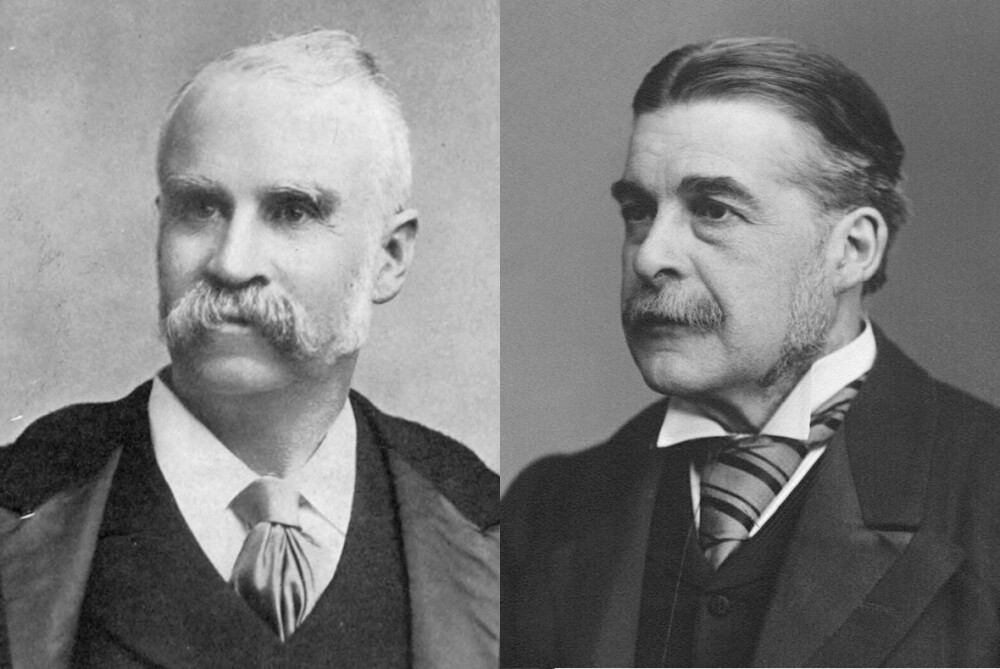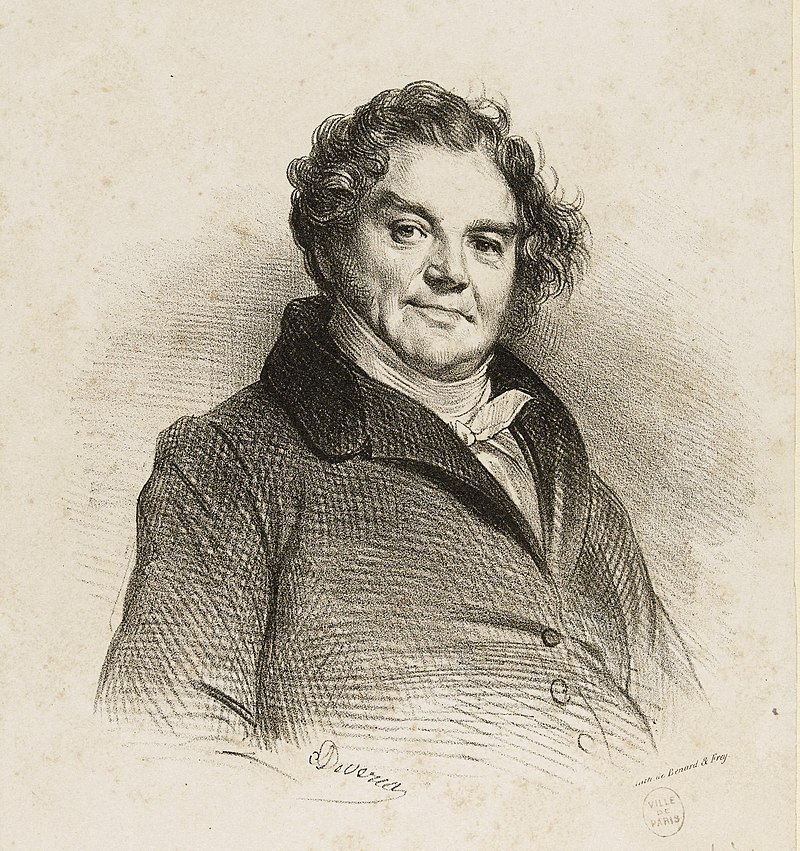Laurence Senelick
Operetta Research Center
1 March, 2023
It is an accepted notion that Gilbert and Sullivan were careful to exclude anything in their comic operas that could be construed as sexual innuendo, even to the point of banning women in tights.

The team of Gilbert (r.) and Sullivan. (Photo: Wikimedia Commons)
The transvestitic prince of so many operettas, burlesques and extravaganzas is not to be found in the Savoy operas. (Male cross-dressing is briefly allowed in Princess Ida.)
However, I have just come across a reference to a practice in the British navy which may reveal a hidden allusion.

Eugène François Vidocq in a portrait by Achille Devéria, 1828.
Eugène-François Vidocq, a criminal who became the head of the Paris police in the post-Napoleonic period, writes in his memoirs of hanging around French ports in the 1790s, with a view to escaping abroad. He is put off by the long terms a sailor is confined to shipboard. Here is the relevant passage in my translation from Mémoires de Vidocq, chef de la police du Sureté (Paris: Tenon, 1828):
“[Being away for months at a time in the French navy is preferable to] the English navy, where the sailor can remain for years on end without seeing his homeland other than from the topgallants of his ship; only trustworthy men may serve as oarsmen, and even people foreign to the crew have been seen to be used that way. To alleviate the hardship of this confinement, they allow on board some of those women of ill repute who pullulate in seaports; and who are called, I don’t know why, ‘Queen Caroline’s daughters.’ The English sailors who later informed me of the details…added that, to partially disguise the immorality of the practice, Puritanical captains sometimes demand that the female visitors take the name of cousins or sisters.”

The Memoirs of Eugène François Vidocq. (Photo: Heritage Auctions, HA.com)
W. S. Gilbert was familiar with all things nautical. Could he have heard of this pre-Victorian practice and slily had Sir Joseph Porter, lord of the Admiralty, come on board the H.M.S. Pinafore accompanied by “his sister and his cousins and his aunts” with a nod in this direction?

Poster illustration from the original 1878 production at at the Opera Comique in London.
It certainly offers an opening to an ingenious stage director.

My guess is that if this sexual innuendo is indeed embedded in Pinafore, it was an innuendo which for the most part the contemporary audience would not have picked up on.